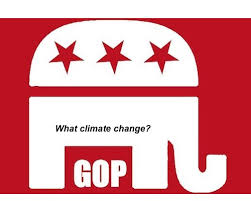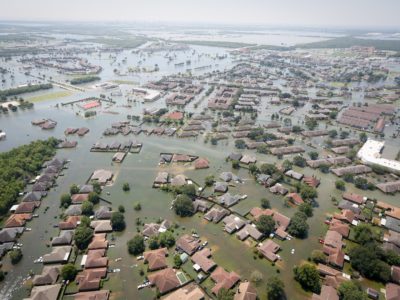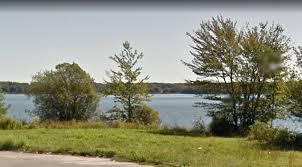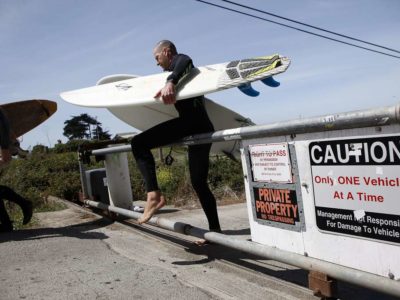Takings Clause
Deja Vu All Over Again
There’s a new GOP Platform, same as the old one.
It appears that the GOP won’t have a new platform this year. Instead, they’re going to stick with their 2016 platform. You could see that as steadfastness or a lack of new ideas. In the environmental arena, 2016 is still where the GOP is stuck today, celebrating fossil fuels and rejecting climate action. Here are …
Continue reading “Deja Vu All Over Again”
CONTINUE READINGDo Epidemic-Based Business Closures by Government Trigger an Unconstitutional “Taking”?
Longstanding U.S. Supreme Court Precedents Indicate the Answer is an Unequivocal “No”
Lately, an increasing number of public and private voices have been raised in opposition to business closures ordered by state and local governments in response to the COVID-19 epidemic. In many such cases, that opposition has taken the form of lawsuits filed by business owners, claiming a violation of their constitutional rights. Gun shops across …
CONTINUE READINGIs Saving Lives Unconstitutional? A Response to John Yoo
Takings law is complicated, but the answer to this question is clear. The answer is no.
Like others on the extreme right, the Hoover Institution is campaigning against “stay at home” orders because they cost too much money. Regrettably, the most recent argument to this effect on their website is by my colleague John Yoo. He argues that the Constitution requires states to compensate business owners for their losses. That’s simply …
Continue reading “Is Saving Lives Unconstitutional? A Response to John Yoo”
CONTINUE READINGThreat Assessment: The Supreme Court & the Environment
The current bench is tilted against environmental regulation. It could get worse.
In September, Take Back the Court issued a study entitled, “The Roberts Court Would Likely Strike Down Climate Change Legislation.” In my view, that’s too alarmist. But the current conservative majority definitely will be an obstacle to aggressive use of government regulation. That could hold true well into the 2030s, depending on who leaves the …
Continue reading “Threat Assessment: The Supreme Court & the Environment”
CONTINUE READINGWhen is a Flood a Government Taking?
Should the feds be liable for flooding during Hurricane Harvey?
A federal statute bars nearly all claims against the federal government for flooding. Victims of flooding from Hurricane Harvey seem to have found a loophole by claiming that their property was taken without just compensation by flooding. The facts are unusual, but the case raises some deep questions about financial responsibility for flood control. Here …
Continue reading “When is a Flood a Government Taking?”
CONTINUE READINGHolmes, Brandeis, and the ‘Great Ponds’ Debate
Some issues are perennial, like property rights v. public rights in water.
I suppose most of you, like me, have never heard of the Watuppa Ponds. But in 1888, a battle broke out over the legality of their use to supply drinking water for a nearby city. The issue closely divided Massachusetts’s highest court, and led to a heated debate in the recently launched Harvard Law Review …
Continue reading “Holmes, Brandeis, and the ‘Great Ponds’ Debate”
CONTINUE READINGSupreme Court Takes a Knick Out of Regulatory Takings Law
Justices Curb Ripeness Rule; Open Federal Courts to Takings Litigation
In the final, major environmental law decision of its current Term, the U.S. Supreme Court handed property rights advocates a major victory while repudiating an important regulatory takings precedent the Court had itself fashioned and announced 34 years ago. The case is Knick v. Township of Scott. By a narrow 5-4 vote that split …
Continue reading “Supreme Court Takes a Knick Out of Regulatory Takings Law”
CONTINUE READINGRoy Cohn Meets The Takings Clause
Sleeper Supreme Court Case Could Upend Environmental Regulations
“I don’t want to know what the law says. I want to know who the judge is.” — Roy M. Cohn Roy Cohn was one of the most disgusting figures of 20th century American law, whose red-baiting and homophobia were exceeded in awfulness only by his mentoring of Donald Trump. But when it comes to …
Continue reading “Roy Cohn Meets The Takings Clause”
CONTINUE READINGContentious California Beach Access Case Heads to U.S. Supreme Court
Longstanding Martins Beach Controversy May Well Capture Justices’ Attention
The U.S. Supreme Court’s 2018-19 Term is already shaping up as a big one for environmental law in general and the longstanding tension between private property rights and environmental regulation in particular. The Court has already agreed to hear and decide two cases next Term raising the latter set of issues: one involves the question …
Continue reading “Contentious California Beach Access Case Heads to U.S. Supreme Court”
CONTINUE READINGThe Anthropocene and private law
Areas such as torts and property will face significant challenges
I’ve posted about how the Anthropocene will see major changes in how humans affect our planet, and how those changes will have major impacts on human society, triggering substantially larger interventions by the legal system in a wide range of individual behavior. In this post, I want to spin out some of the implications of …
Continue reading “The Anthropocene and private law”
CONTINUE READING











